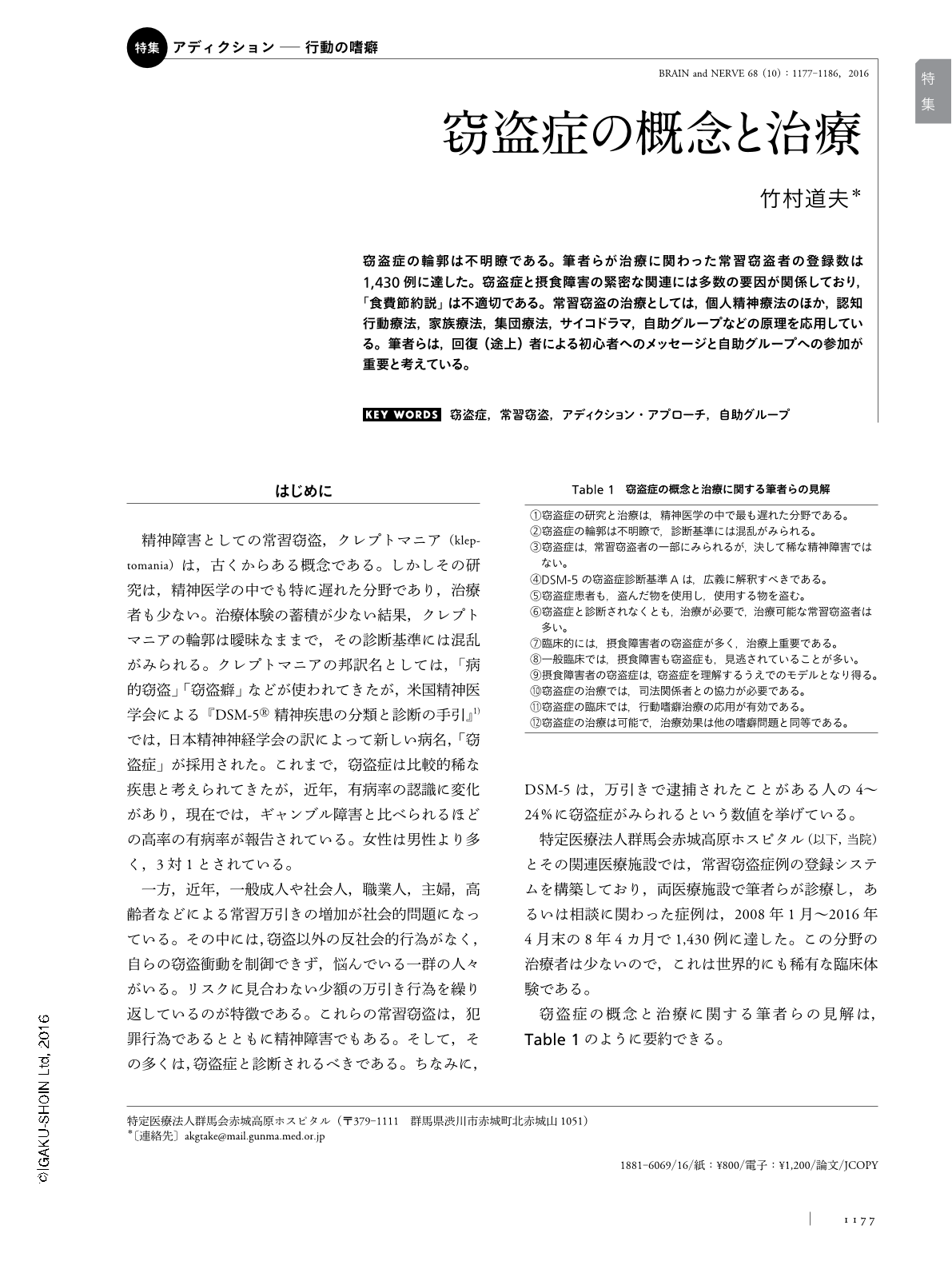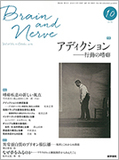Japanese
English
- 有料閲覧
- Abstract 文献概要
- 1ページ目 Look Inside
- 参考文献 Reference
- サイト内被引用 Cited by
窃盗症の輪郭は不明瞭である。筆者らが治療に関わった常習窃盗者の登録数は1,430例に達した。窃盗症と摂食障害の緊密な関連には多数の要因が関係しており,「食費節約説」は不適切である。常習窃盗の治療としては,個人精神療法のほか,認知行動療法,家族療法,集団療法,サイコドラマ,自助グループなどの原理を応用している。筆者らは,回復(途上)者による初心者へのメッセージと自助グループへの参加が重要と考えている。
Abstract
Research on kleptomania has lagged behind that of other mental disorders, and very few clinicians specialize in treating such patients. Futhermore, the descriptive outline of kleptomania in the DSM-5 is vague. In 2008, we started a registration system for patients suffering from habitual theft, which has recorded 1430 cases since its inauguration. In this report, we explain the concept of kleptomania and describe our clinical experience in the treatment of patients suffering from this mental disorder. The most frequent complication of kleptomania was found to be eating disorder (especially bulimia). Although many factors contribute to the close relationship between these two mental disorders, the theory of “saving money on food expenses” as the motive for thefts committed by eating disorder patients, oversimplifies a complicated matter, and is inadequate as an explanation of the mechanism of this relationship. Medical treatment for kleptomania presently comprises counseling (individual psychotherapy), cognitive behavioral therapy, family therapy, group psychotherapy, psychodrama, and self-help groups, among others. In our addiction treatment approach, we have developed and implemented a program wherein recovered (recovering) patients share their personal experiences with newcomers and beginners, as well as their family members. We strongly encourage patients with kleptomania to participate in self-help groups.

Copyright © 2016, Igaku-Shoin Ltd. All rights reserved.


